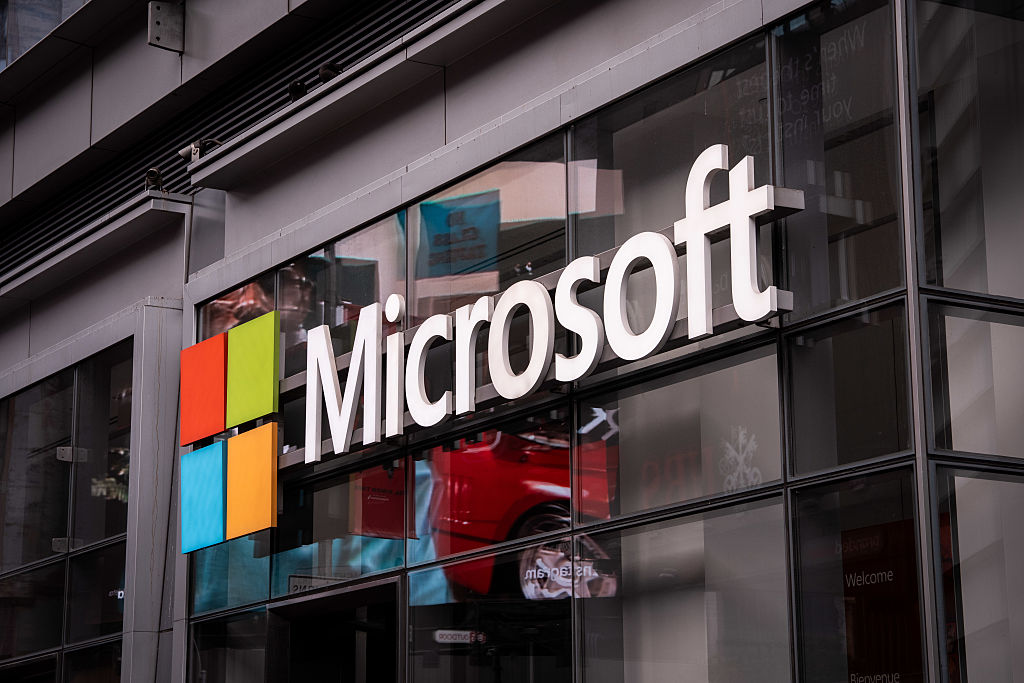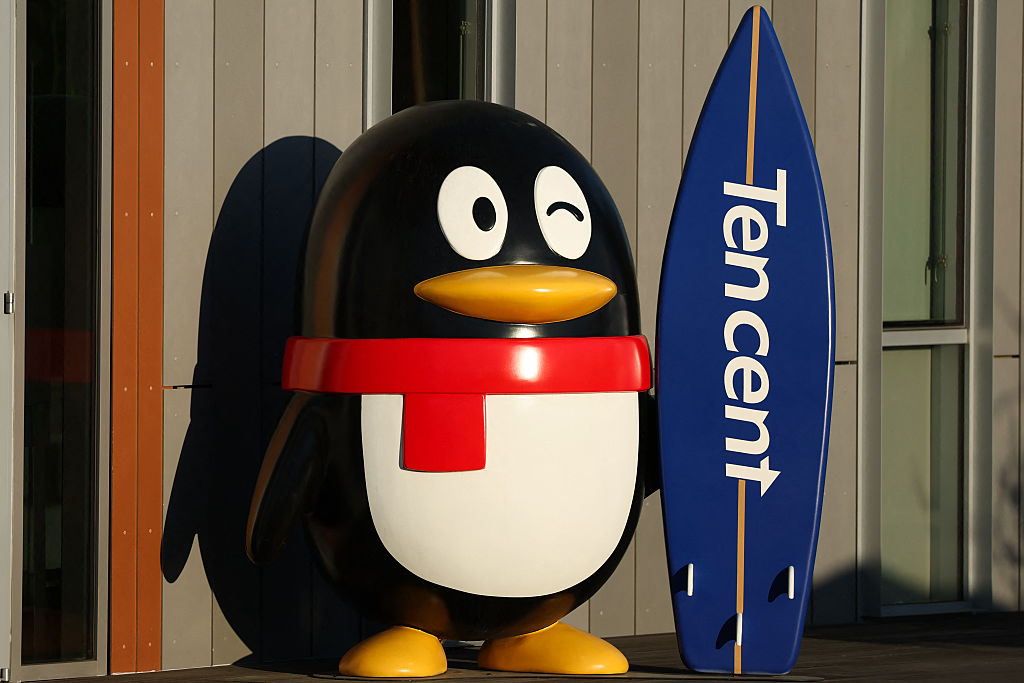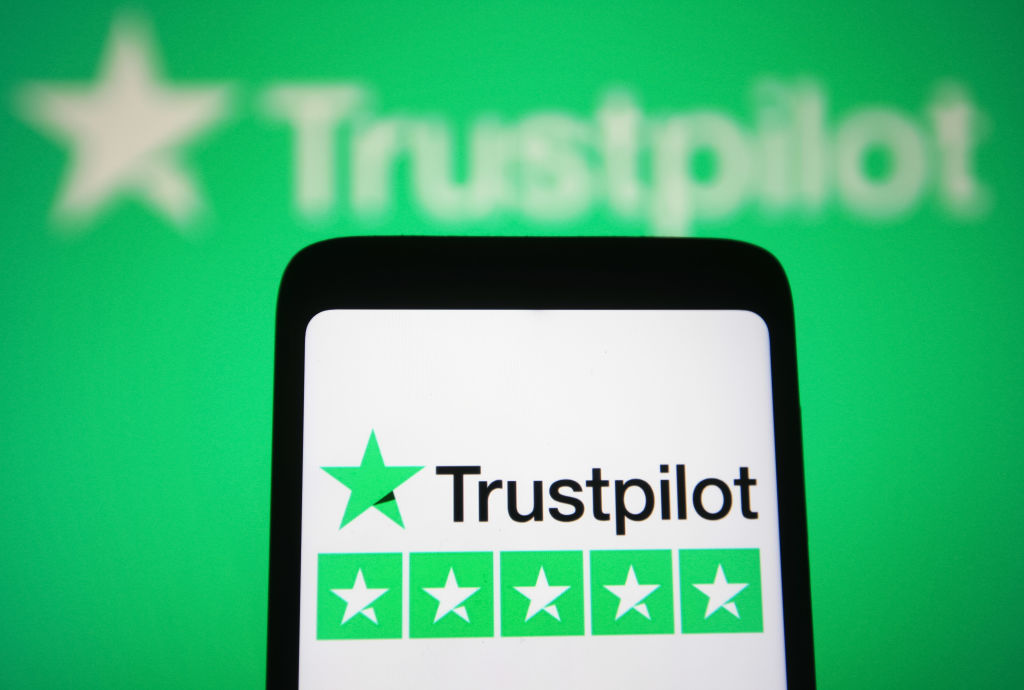Should you invest in Microsoft?
Microsoft is set to become the second company in the world to reach a $4 trillion valuation. Is now a good time to invest in Microsoft?


Get the latest financial news, insights and expert analysis from our award-winning MoneyWeek team, to help you understand what really matters when it comes to your finances.
You are now subscribed
Your newsletter sign-up was successful
Want to add more newsletters?

Twice daily
MoneyWeek
Get the latest financial news, insights and expert analysis from our award-winning MoneyWeek team, to help you understand what really matters when it comes to your finances.

Four times a week
Look After My Bills
Sign up to our free money-saving newsletter, filled with the latest news and expert advice to help you find the best tips and deals for managing your bills. Start saving today!
Microsoft stock soared following its Q4 FY 2025 results, released after markets closed on 30 July, putting the company on course to break the $4 trillion market cap threshold.
The clamour to invest in Microsoft (NASDAQ:MSFT) has pushed its share price to unprecedented highs. Microsoft shares gained over 7% immediately after its earnings release, and continued to gain as the company’s earnings call took place.
“This quarter was music to the ears of Microsoft bulls as it exceeded Wall Street expectations, with significantly accelerated Azure growth,” said Dan Ives, global head of technology research at Wedbush Securities.
MoneyWeek
Subscribe to MoneyWeek today and get your first six magazine issues absolutely FREE

Sign up to Money Morning
Don't miss the latest investment and personal finances news, market analysis, plus money-saving tips with our free twice-daily newsletter
Don't miss the latest investment and personal finances news, market analysis, plus money-saving tips with our free twice-daily newsletter
While not one of the top stocks among retail investors, Microsoft is a longstanding stock market giant, and now looks set to follow Nvidia into the $4 trillion club.
Of the ’Magnificent Seven’ stocks that currently dominate the S&P 500 and, with it, much of the global stock market, Microsoft is the oldest, having been founded in 1975 – one year before Apple.
Microsoft has had its share of ups and downs during that time. Microsoft stock gained over 460% in three years during the dotcom bubble of the late 1990s, but fell over 50% over the next three years as the bubble crashed.
But Microsoft has been at the forefront of various computing revolutions. PCs, the enterprise suite through Microsoft Office, and more recently cloud computing and artificial intelligence (AI) have seen it become a consistent leader in the global stock market and economy.
What is Microsoft Azure?
Microsoft Azure is Microsoft’s cloud computing platform. It is a direct competitor to Google’s GCP (standing for Google Cloud Platform) and Amazon’s AWS (Amazon Web Services).
These three companies dominate the cloud hosting market, holding a 63% market share between them. AWS is the largest incumbent, but with AI spending driving a boom in demand for cloud hosting services, there is space for Azure to grow extensively even if it just maintains its 22% share.
But the evidence suggests that Azure might be doing more than this, and could take market share away from AWS.
Azure revenue increased 39% in the year to June 2025, a figure that helped Microsoft’s stock soar towards $4 trillion after its earnings were announced.
Demand for AI is driving a surge of cloud revenue growth, as the developers of new AI models use cloud computing resources (referred to as ‘compute’ within the industry) in order to train and develop their new models.
How much is Microsoft spending on data centres?
One metric that would-be Microsoft investors should keep an eye on is its capital expenditure.
Microsoft expects to spend $30 billion on building out AI data centres in Q3 2025 alone. Those numbers would have worried the market a year or two ago. In the current climate, Microsoft has demonstrated that it can generate strong returns even on this level of investment.
“Microsoft is doubling down on the AI monetisation strategy within cloud,” said Ives. In other words, as long as it can keep monetising the demand for AI cloud services, the market may not mind how much Microsoft spends on building data centres.
Does Microsoft own OpenAI?
Microsoft is a major investor in OpenAI, the company behind ChatGPT, though it doesn’t own it.
It has rights to OpenAI’s IP, and also benefits from OpenAI’s demand for access to Azure – though OpenAI is reportedly exploring the possibility of ending its exclusive use of Azure in favour of other partners.
As well as access to OpenAI’s IP which includes ChatGPT, Microsoft also has its own AI assistant, Copilot. Microsoft’s CEO Satya Nadella revealed during the Q4 2025 earnings call that Copilot’s family of apps had surpassed 100 million monthly users.
Are Microsoft shares good value?
Despite being the world’s second-most valuable company, Microsoft stock isn’t wildly overpriced, at least not by the standards of big tech stocks.
As of close of regular trading on 30 July, Microsoft’s stock was priced at 37.6 times trailing earnings and 33.6 times projected earnings. That made Microsoft stock cheaper than shares in Nvidia or Amazon – though these figures predate the after-hours surge that accompanied Microsoft’s earnings release.
Given Microsoft’s mix of AI exposure, revenue visibility, impressive margins and healthy cash flows, Matt Britzman, senior equity analyst at Hargreaves Lansdown, says that “investors don’t need to look much further for an AI name to buy and hold”.
Similarly, Lale Akoner, global market analyst at eToro, says "if you’re looking for a stable, long-term way to ride the AI wave, [Microsoft] is still one of the best bets out there".
Get the latest financial news, insights and expert analysis from our award-winning MoneyWeek team, to help you understand what really matters when it comes to your finances.

Dan is a financial journalist who, prior to joining MoneyWeek, spent five years writing for OPTO, an investment magazine focused on growth and technology stocks, ETFs and thematic investing.
Before becoming a writer, Dan spent six years working in talent acquisition in the tech sector, including for credit scoring start-up ClearScore where he first developed an interest in personal finance.
Dan studied Social Anthropology and Management at Sidney Sussex College and the Judge Business School, Cambridge University. Outside finance, he also enjoys travel writing, and has edited two published travel books.
-
 Should you buy an active ETF?
Should you buy an active ETF?ETFs are often mischaracterised as passive products, but they can be a convenient way to add active management to your portfolio
-
 Power up your pension before 5 April – easy ways to save before the tax year end
Power up your pension before 5 April – easy ways to save before the tax year endWith the end of the tax year looming, pension savers currently have a window to review and maximise what’s going into their retirement funds – we look at how
-
 Three key winners from the AI boom and beyond
Three key winners from the AI boom and beyondJames Harries of the Trojan Global Income Fund picks three promising stocks that transcend the hype of the AI boom
-
 'AI is the real deal – it will change our world in more ways than we can imagine'
'AI is the real deal – it will change our world in more ways than we can imagine'Interview Rob Arnott of Research Affiliates talks to Andrew Van Sickle about the AI bubble, the impact of tariffs on inflation and the outlook for gold and China
-
 Three promising emerging-market stocks to diversify your portfolio
Three promising emerging-market stocks to diversify your portfolioOpinion Omar Negyal, portfolio manager, JPMorgan Global Emerging Markets Income Trust, highlights three emerging-market stocks where he’d put his money
-
 Coreweave is on borrowed time
Coreweave is on borrowed timeAI infrastructure firm Coreweave is heading for trouble and is absurdly pricey, says Matthew Partridge
-
 An AI bust could hit private credit – could it cause a financial crisis?
An AI bust could hit private credit – could it cause a financial crisis?Opinion Private credit is playing a key role in funding data centres. It may be the first to take the hit if the AI boom ends, says Cris Sholto Heaton
-
 Why Trustpilot is a stock to watch for exposure to the e-commerce market
Why Trustpilot is a stock to watch for exposure to the e-commerce marketTrustpilot has built a defensible position in one of the most critical areas of the internet: the infrastructure of trust, says Jamie Ward
-
 ChatGPT turns three: what’s next for the ‘AI era’?
ChatGPT turns three: what’s next for the ‘AI era’?Three years after its launch kickstarted the age of AI, ChatGPT and its maker OpenAI are driving the stock market. But concerns are growing over whether OpenAI will be able to turn its AI dominance into profit.
-
 Big Short investor Michael Burry closes hedge fund Scion Capital
Big Short investor Michael Burry closes hedge fund Scion CapitalProfile Michael Burry rightly bet against the US mortgage market before the 2008 crisis. Now he is worried about the AI boom